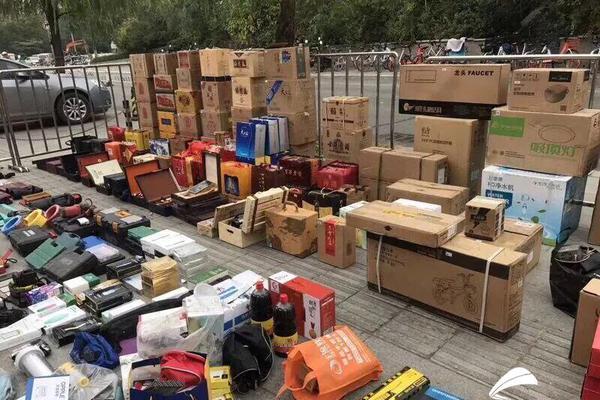The "sadistic eroticism" sophieransom is on the move.
The Bitcoin wallet controlled by the NotPetya attackers showed surprising signs of life over the Fourth of July holiday weekend, with approximately $10,000 in paid ransom disappearing from the account. Around the same time, a message purporting to be from the culprits behind the maybe-ransomware attack surfaced — demanding 100 bitcoin in exchange for a key they say can unlock encrypted files.
SEE ALSO: It won't be easy for WannaCry hackers to get their cashAt the time of writing, 100 bitcoin is worth approximately $260,000.
"Send me 100 Bitcoins and you will get my private key to decrypt any harddisk (except boot disks)," read the message posted to Pastebin. "See the attached file signed with the key."
As NotPetya, which first surfaced in Ukraine on June 27, has been shown to damage an infected computer's master boot record, the person behind the message is only claiming to be able to decrypt specific files — not entire systems. Still, that ability could be a godsend for companies struggling to restore lost data, assuming the ransomer is telling the truth.
The new demand was posted on July 4, the same day ransom payments made in the hopes of obtaining decryption keys were moved from the Bitcoin address listed in the initial NotPetya attack to another wallet.
 Original image has been replaced. Credit: Mashable
Original image has been replaced. Credit: Mashable No new Bitcoin address was listed for payments should anyone decide to actually fork over the 100 bitcoin. However, a link was provided to a chatroom for the purpose of getting in touch with the hackers and presumably arranging payment.
Motherboardexchanged messages with someone claiming to be one of the hackers, who told the publication the key for sale would "decrypt all computers."
So, should organizations desperate for their data pay up? It's a tough question. Security researchers have more or less reached a consensus that the intention behind NotPetya was to damage cyber-infrastructure, not to make money. As such, the calculus for victims is different than it would be with a more traditional form of ransomware.
Either way, this latest series of developments — the transfer of funds between Bitcoin wallets and the new demand — serves to further muddy the waters behind the NotPetya attack. It also makes one thing clear: The story of the latest ransomware scourge to sweep the globe is not over yet.
Topics Bitcoin Cybersecurity Cryptocurrency
(Editor: {typename type="name"/})
 Google 'Ask for me:' AI that calls businesses on your behalf for pricing and availability
Google 'Ask for me:' AI that calls businesses on your behalf for pricing and availability
 Exclusive: Here's a peek at Monica Hesse's new novel 'The War Outside'
Exclusive: Here's a peek at Monica Hesse's new novel 'The War Outside'
 Nintendo Switch still doesn't let you back up save data, one year in
Nintendo Switch still doesn't let you back up save data, one year in
 Google's iPhone app now has search built into iMessage
Google's iPhone app now has search built into iMessage
 Houston Rockets vs. Dallas Mavericks 2025 livestream: Watch NBA online
Houston Rockets vs. Dallas Mavericks 2025 livestream: Watch NBA online
Precursors to Today's Technology: These Products Had the Right Vision
 Products like the Apple Newton and the Nintendo Power Glove immediately come to mind when reminiscin
...[Details]
Products like the Apple Newton and the Nintendo Power Glove immediately come to mind when reminiscin
...[Details]
The best 3 apps for tracking your crypto portfolio
 Rule of thumb for the majority of people looking to invest their earnings is to put money in quality
...[Details]
Rule of thumb for the majority of people looking to invest their earnings is to put money in quality
...[Details]
Exclusive: Here's a peek at Monica Hesse's new novel 'The War Outside'
 Monica Hesse's books are like time machines —vehicles that help us explore our past.In her fir
...[Details]
Monica Hesse's books are like time machines —vehicles that help us explore our past.In her fir
...[Details]
 Netflix has a new gift that parents may find useful: The ability to PIN-protect individual titles. C
...[Details]
Netflix has a new gift that parents may find useful: The ability to PIN-protect individual titles. C
...[Details]
Apple's newest ad makes a haunting plea to take climate change seriously
 Apple's latest commercial is advertising the Earth.In a rare topical turn for the company, the ad ma
...[Details]
Apple's latest commercial is advertising the Earth.In a rare topical turn for the company, the ad ma
...[Details]
Nintendo Switch still doesn't let you back up save data, one year in
 Nintendo Switch launched on March 3, 2017. Today, exactly one year later, you're still at risk of lo
...[Details]
Nintendo Switch launched on March 3, 2017. Today, exactly one year later, you're still at risk of lo
...[Details]
After Parkland shooting, do we need social media background checks?
 In 2014, Tashfeen Malik's family in Pakistan started to worry about her Facebook posts. It was the r
...[Details]
In 2014, Tashfeen Malik's family in Pakistan started to worry about her Facebook posts. It was the r
...[Details]
 There's a sexual misconduct elephant in the room on E!'s Oscars Live From the Red Carpet, and his na
...[Details]
There's a sexual misconduct elephant in the room on E!'s Oscars Live From the Red Carpet, and his na
...[Details]
The Year in Tech: 2014 Top Stories
 As the year comes to a close it's time to take a look back at some of the events that shaped the tec
...[Details]
As the year comes to a close it's time to take a look back at some of the events that shaped the tec
...[Details]
Someone reportedly tried to steal Frances McDormand's Oscar at a party
 Updated 3:56 p.m.: The man has been identified.After Frances McDormand's stirring Best Actress accep
...[Details]
Updated 3:56 p.m.: The man has been identified.After Frances McDormand's stirring Best Actress accep
...[Details]
Wordle today: The answer and hints for February 13, 2025

Jennifer Garner at the Oscars is your new favourite existential crisis meme

接受PR>=1、BR>=1,流量相当,内容相关类链接。